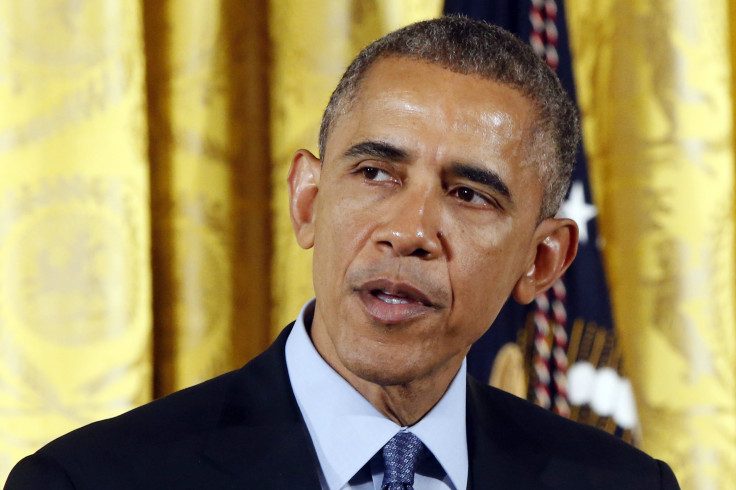US Senator John McCain Calls Restricting Obama's War Powers Against ISIS 'Unconstitutional'

United States President Barack Obama’s request to authorise the use of military force against ISIS should not be hindered. U.S. Senator John McCain appealed to members of Congress to not restrict the president in taking military action because it would be “unconstitutional.”
McCain, who is also the Senate Armed Services Chairman, told NBC that restraining the authority of Mr Obama will only lead to 535 commanders-in-chief in reference to the total number of members in Congress. His comments came after the president sent a draft seeking approval from Congress to authorise the use of force with limited use of ground troops and no geographic limits.
However, Senator Jack Reed, a ranking member of the Armed Services Committee, said the proposed three-year engagement was “not appropriate.” He responded to McCain’s comments and said he doesn’t want to send the message to the world that the U.S. will only be there for a limited time.
Reed believes the battle will take a longer time than the stipulated period. Despite not supporting the limited engagement, Reed expressed his approval on the limitation of troops to be sent to fight ISIS militants.
When McCain was asked for the reason why he pushes for increased U.S. military presence in other parts of the world, the senator said the U.S. president should leave a residual force in several instances. He added that the U.S. should have a stabilizing force and boots on the ground.
Meanwhile, the U.S. continues to intensify efforts to counter ISIS. The New York Times reports that the Obama administration has acknowledged ISIS’ efficiency in attracting new recruits and foreign fighters. The U.S. government has expanded the Centre for Strategic Counterterrorism Communications to bring together all current attempts of countermessaging by bigger agencies like Homeland Security and the Pentagon.
The centre is expected to coordinate and amplify the same message by U.S. allies, nongovernment agencies as well as Muslim academics who are against ISIS. Intelligence agencies said ISIS supporters produce as much as 90,000 tweets and other responses to social media everyday. U.S. officials have admitted that they have a tough job in countering the momentum of ISIS in social media.
Richard Stengel, undersecretary of state for public diplomacy and public affairs, said the U.S. counterterrorism efforts on social media are being beaten on volume. The details of the counterterrorism plan are still being determined but a general outline will be released in upcoming meetings with administration officials.
The former managing editor of Time magazine said the new campaign against ISIS would use strategies taken by businesses and individuals to increase their digital footprint. More than 350 Twitter accounts of the State Department will be used including similar accounts owned by the Pentagon, Homeland Security and other foreign allies.
To report problems or leave feedback on this article, contact: r.su@ibtimes.com.au





















